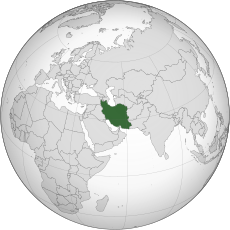United Nations Security Council Resolution 1737
| UN Security Council Resolution 1737 |
|
|---|---|

|
|
| Date | 23 December 2006 |
| Meeting no. | 5,612 |
| Code | S/RES/1737 (Document) |
| Subject | The situation concerning Iran Non-proliferation |
|
Voting summary
|
15 voted for None voted against None abstained |
| Result | Adopted |
| Security Council composition | |
|
Permanent members
|
|
|
Non-permanent members
|
|
United Nations Security Council Resolution 1737 was unanimously passed by the United Nations Security Council on 23 December 2006.
The resolution, sponsored by France, Germany and the United Kingdom, imposed sanctions against Iran for failing to stop its uranium enrichment program following resolution 1696. It banned the supply of nuclear-related technology and materials and froze the assets of key individuals and companies related to the enrichment program. It took place two months after the creation of a draft-resolution, which was amended several times after objections from Russia and China. These objections were evident, as it took a last minute call from Russian President Vladimir Putin to U.S. President George W. Bush to finalise the vote. The resolution came after Iran rejected economic incentives put forward by the permanent five members of the Security Council plus Germany for Iran to halt its nuclear enrichment programme.
The resolution, enacted under Chapter VII of the United Nations Charter, requires Iran to suspend certain "proliferation sensitive nuclear activities." It places several prohibitions on all states with regards to Iran's nuclear activities. The Security Council also imposed a freeze on those assets supporting or associated with Iran's proliferation nuclear activities and established a committee (known as the 1737 Committee) to oversee their implementation. It also provided a deadline for Iran to comply with the resolution. The sanctions would be lifted if Iran suspended the "suspect activities" within 60 days to the satisfaction of the International Atomic Energy Agency.
...
Wikipedia
